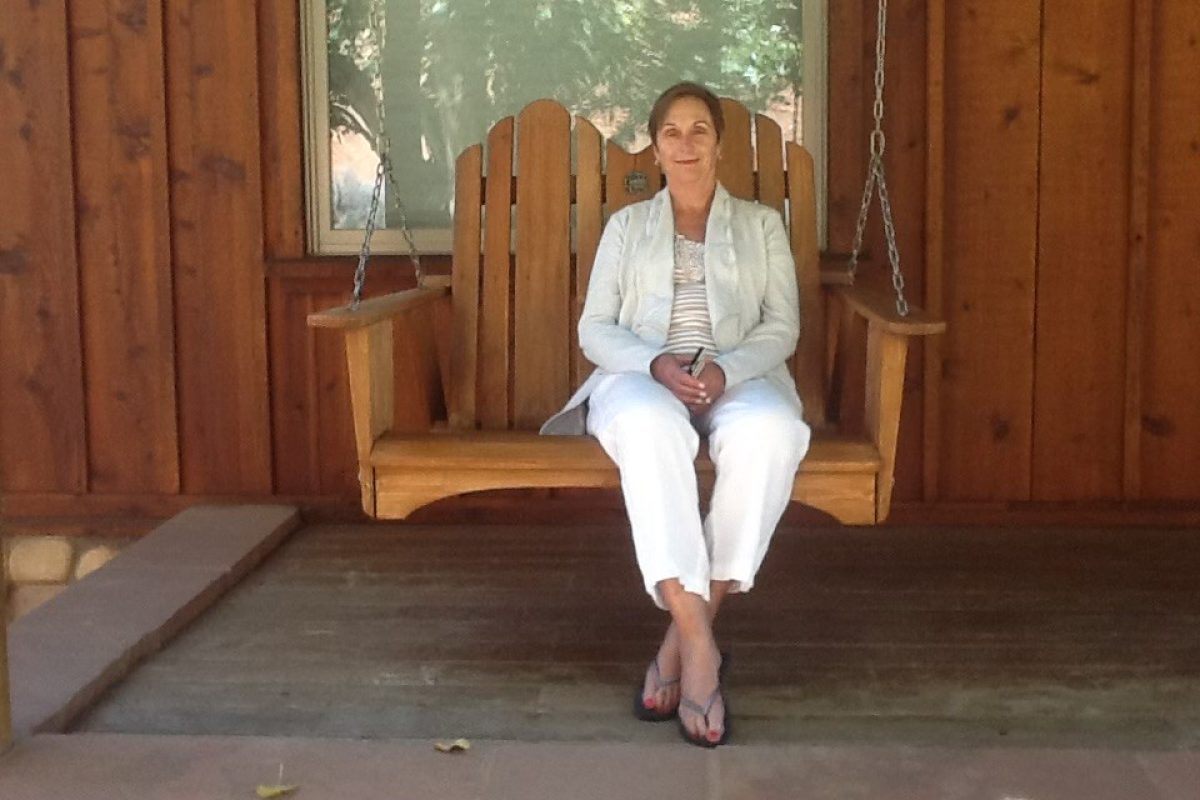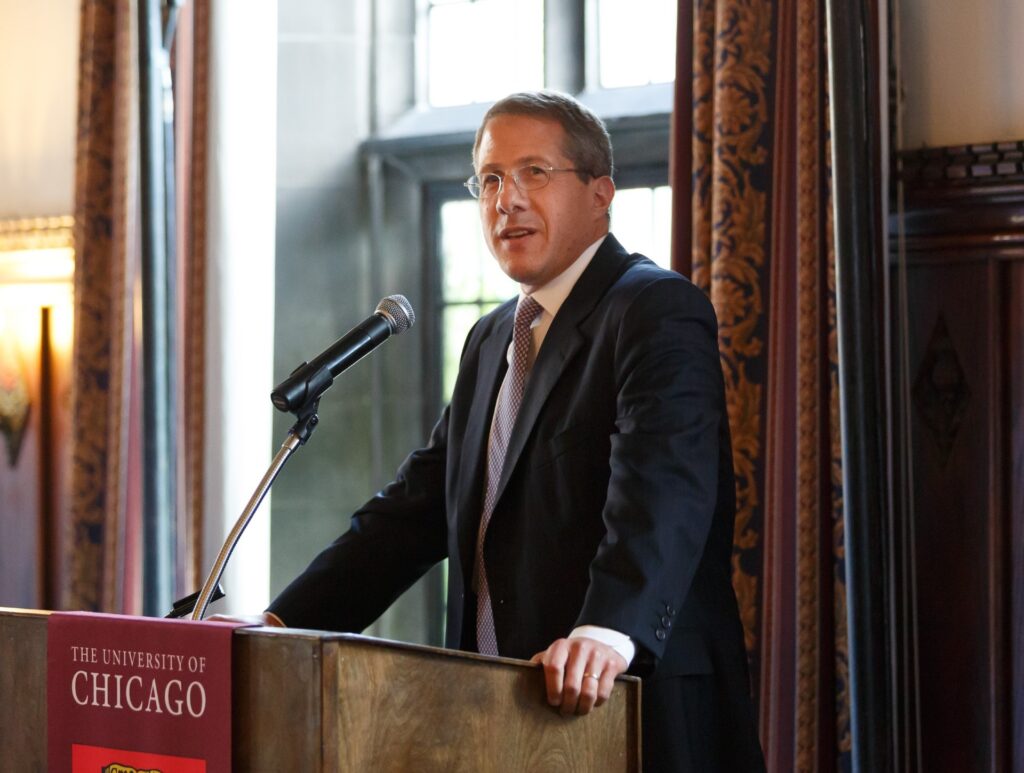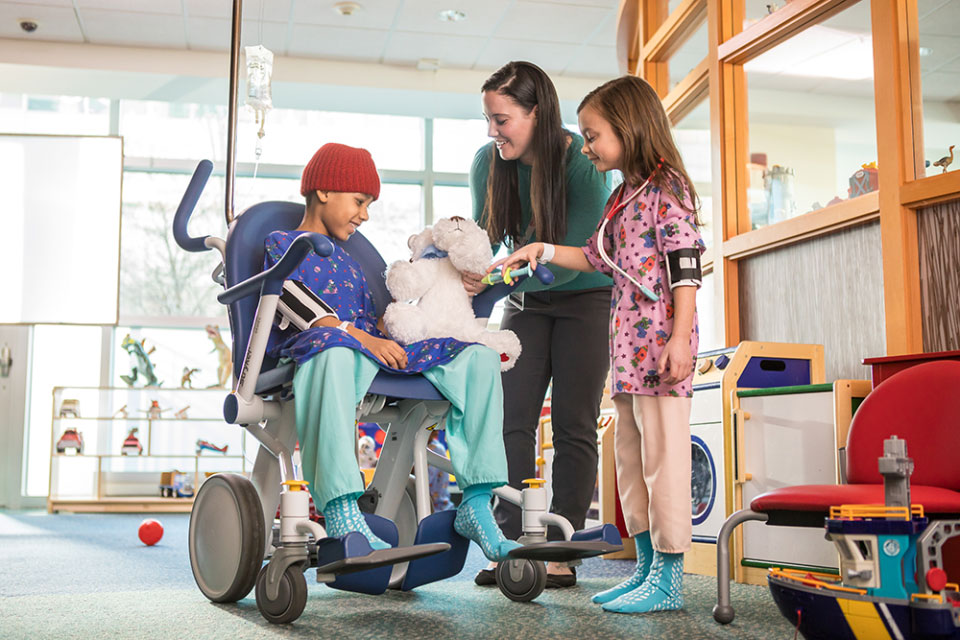After many years of engagement and investment with University of Chicago Medicine, the Gerald O. Mann Charitable Foundation launched the Harriet Wulfstat Innovation Fund for Cellular Therapies to advance emerging and promising pancreatic cancer research. The fund honors the legacy of Harriet Wulfstat, a foundation trustee, who dedicated herself to advancing research and supporting initiatives at UChicago Medicine until she passed away from pancreatic cancer in 2020.
“It started in 2006, when Harriet was diagnosed with pancreatic cancer. We were in shock. Our biggest concern was not knowing what to do or where to go when the diagnosis came in,” said Harriet’s husband, Allan Wulfstat. “We asked a friend who recently lost his mother to pancreatic cancer for guidance, and he said to call Dr. Mitchell Posner at UChicago Medicine. Dr. Posner performed the Whipple surgery to remove the pancreatic tumor, and she was fortunate to have survived for fifteen more years.”
Pancreatic cancer has the highest mortality rate of all major cancers and is currently the third leading cause of cancer-related deaths in the US. It is often detected in late stages and is notoriously hard to treat.
Solid tumor cancers like pancreatic cancer present specific challenges to cancer researchers. Currently, cellular therapy, a type of immunotherapy that teaches a patient’s immune system to target cancer cells, has produced notable successes in treating blood cancers such as leukemia and lymphoma. Scientists harness the immune system’s T cells, which recognize antigens—harmful cells and molecules—and attack them. T cells then recognize the antigens if they reappear. Blood cancers nearly always express the same antigens and researchers at UChicago Medicine successfully pioneered cellular therapies to combat these types of cancer.
However, solid tumors have unique obstacles to cellular therapies—not only does each patient’s cancer have its own set of antigens, but a tumor often has several cell populations, each with different antigens. For researchers seeking a target for immunotherapy, solid tumors are a fortress, with the microenvironment inside the tumor particularly hostile to attacks by immune cells.
Guided by Dr. Posner, Harriet, her family, and the foundation became interested in the work of Hans Schreiber, MD, PhD, one of the world’s foremost experts in antigen biology. His lab studies how cancer cells interact with the immune system. His frequent collaborator, Michael Bishop, MD, is an internationally recognized expert in cellular therapies for blood cancers. Together, they are working to figure out how to translate engineered cellular therapies for patients with pancreatic cancer, which offers hope for individualized treatment and better options for patients.
Early and sustained support from the foundation and the Wulfstat family for research programs like Dr. Schreiber’s set the stage for the establishment of the David and Etta Jonas Center for Cellular Therapy in 2019. The center brings together physicians and scientists from several disciplines who study cellular therapies from the initial concept to clinical trials to patient care. The center includes a biobank, a critical tool that allows researchers to collect and study tissue from individual patients. This type of FDA-certified facility and UChicago Medicine’s advanced cellular engineering facilities are rarely found in academic institutions, yet they can drastically reduce the time getting treatments into clinical trials.
“Few places have the resources to do this kind of research. It’s particularly meaningful to see how the investment can support opportunities to personalize treatment for pancreatic cancer, said Harriet’s son, Matt Wulfstat.
Harriet Wulfstat’s deep interest in cancer research and concern for other patients led to the establishment of “Harriet’s Helping Hands”, a patient and family support program offered by the Rolfe Pancreatic Cancer Foundation, where she also served as a board member and reviewer of research proposals.
“Mom’s curiosity and compassion drove her vision—of doctors seamlessly sharing information, support for recently diagnosed patients, and personalized care for pancreatic cancer,” said Harriet’s daughter, Jennifer Wulfstat Gadiel.
Philanthropic support for scientific research can push forward promising new lines of inquiry, and consistent investments made by donors allow researchers to pursue ambitious goals. Harriet Wulfstat’s vision and the foundation’s support of that vision has implications beyond pancreatic cancer research—physicians and scientists pursuing treatments for pancreatic cancer know that successful therapies also hold promise for other hard-to-treat cancers, including ovarian, lung, and head and neck cancers.




